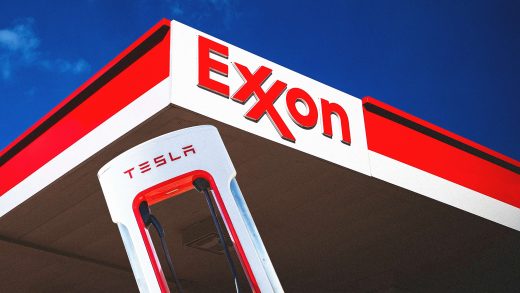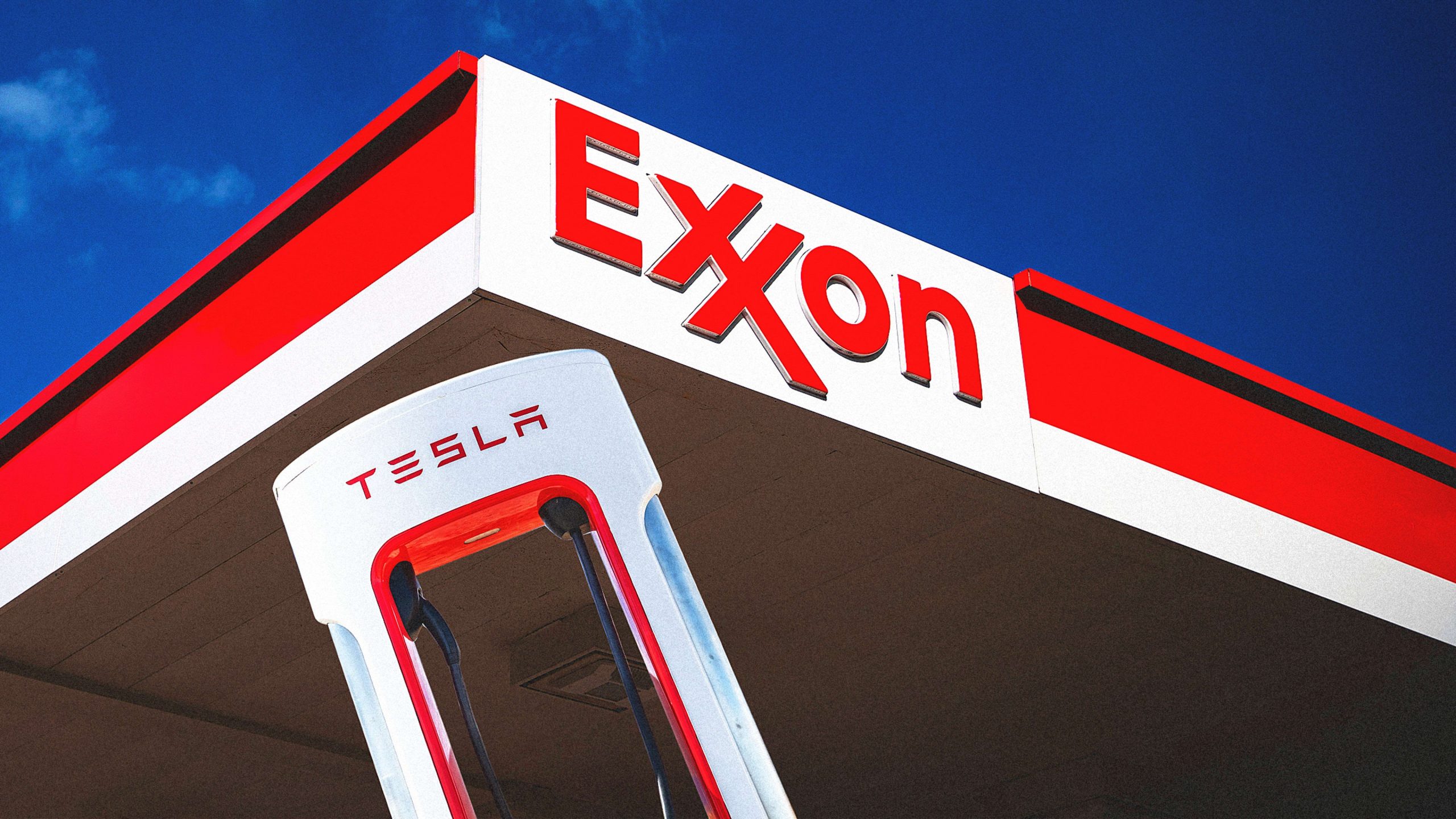Tesla had a bumpy week. But don’t draw conclusions about its stock just yet
Tesla had a bumpy week. But don’t draw conclusions about its stock just yet
The same goes for ExxonMobil.
BY Dan Gearino
This article originally appeared on Inside Climate News. It is republished with permission. Sign up for the newsletter here.
One of the sideshows in a wild week for Tesla is how its market capitalization tumbled behind and then jumped back ahead of ExxonMobil.
The fact that this is even a topic of conversation is a testament to how much Tesla has fallen, with sluggish sales and a vehicle lineup that is overdue for an update in the face of now-formidable competition. Tesla’s market capitalization—the sum of the value of all of its stock—had plummeted from a high of more than $1.2 trillion on January 3, 2022, to $452 billion on Monday.
Tesla regained value later this week following a conference call in which the company affirmed its plans to develop low-cost models. On Wednesday, Tesla’s market cap hit $516 billion.
Meanwhile, ExxonMobil and the oil and gas industry have been on a hot streak ever since Russia invaded Ukraine in February 2022, benefiting from geopolitical instability that has boosted prices of oil and gas, an instability that has grown with the current conflict in the Middle East. ExxonMobil’s market cap went from less than $300 billion before the invasion to $480 billion as of Wednesday.
A lot could be said about the recent decline of Tesla and rise of ExxonMobil, but let me warn you against making grand statements about the trajectory of the energy transition.
I have some experience with this, having noted in 2020 how ExxonMobil’s value, then bottoming out during an extremely rough patch, had fallen below that of NextEra Energy, the Florida-based utility and renewable energy developer.
In the time since, ExxonMobil’s value has grown by a lot and NextEra’s is about the same after some ups and downs. It looks silly, in hindsight, to have talked about the two companies in the same breath.
At this time, two things are true: First, the energy transition has progressed a lot since 2020, and NextEra is an important company in the energy transition. Second, ExxonMobil has been a much better stock to own than NextEra in recent years, from a financial perspective.
A larger point is that it’s tricky to compare the financial performance and market value of companies in different industries, said Pavel Molchanov, an analyst for the financial services company Raymond James.
“While comparing Tesla and Exxon might be a fun parlor game, let’s be clear that this is not some sort of competition over which company is ‘better,’” he said in an email. “Corporate market caps are influenced by a very wide range of variables, many of which are outside management’s control.”
He said oil prices are closely tied to geopolitical factors and have little to do with anything ExxonMobil or any other oil company has accomplished by itself.
At the same time, the EV market is facing some short-term headwinds due to factors such as high interest rates that are making it more expensive to get car loans, he said.
Tesla also has its own issues, including a volatile CEO whose online comments are alienating parts of his customer base, as The Wall Street Journal has reported, citing polling from Strategic Vision. The company’s most recent new product, the Cybertruck, has gotten rough reviews and its top-selling models, the Model Y and Model 3, have gone a long time without a major redesign. And Tesla has gone from being one of the only makers of EVs to having lots of competition.
But Tesla’s specific problems don’t constitute a victory for the fossil fuel economy, said Tom Sanzillo, director of financial analysis for the Institute for Energy Economics and Financial Analysis, a nonprofit that does research in support of the energy transition.
“The energy transition is much bigger than Tesla,” he said.
He has written extensively about how major oil companies such as ExxonMobil aren’t good investments because they don’t have workable plans to exist in the low-carbon world that is coming. So what does he think of the increase in market value of those companies?
“That value is really a function of the geopolitical fights that are going on, hardly something that you would consider to be a part of an investment calculus that would be stable,” he said.
The big picture comes into focus when looking at global trends in how money is being spent. EV market share continues to grow despite current challenges, with the International Energy Agency saying this week that global sales will grow to 17 million vehicles this year, an increase of about 20% from the prior year. EVs would be about one out of every five cars or light trucks sold.
And, as I’ve cited before, global investment in energy transition technologies was $1.8 trillion last year compared to $1.1 trillion for fossil fuels, according to BloombergNEF.
The gap has widened by a lot since 2020, and that matters more than how investors respond to Tesla’s latest pronouncement or how much profit ExxonMobil made in the last quarter.
ABOUT THE AUTHOR
Fast Company
(17)



